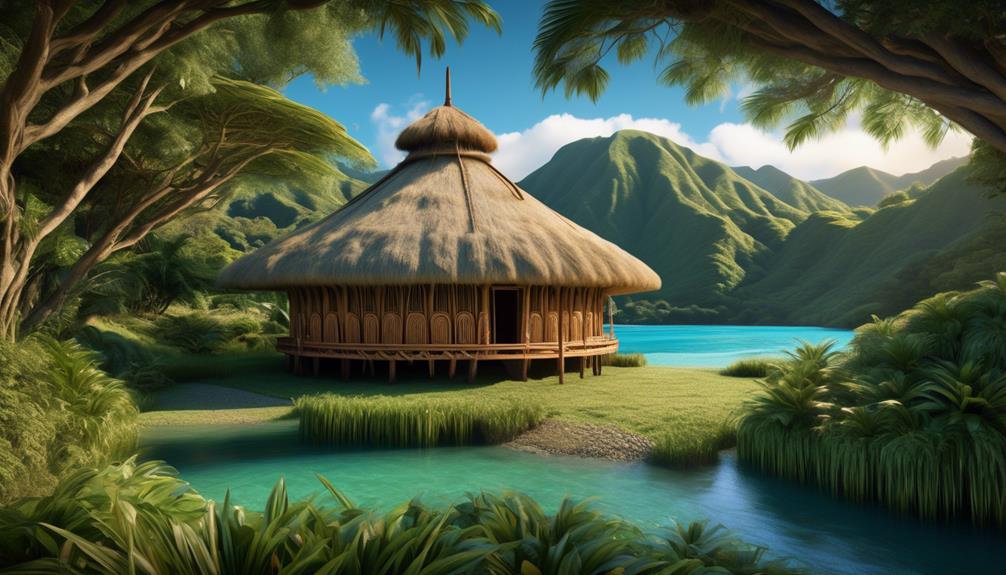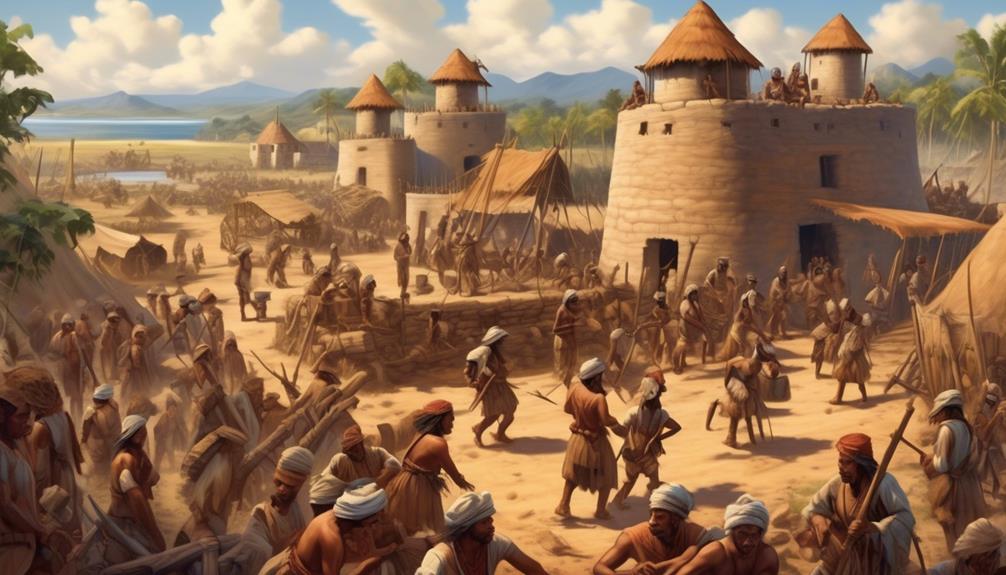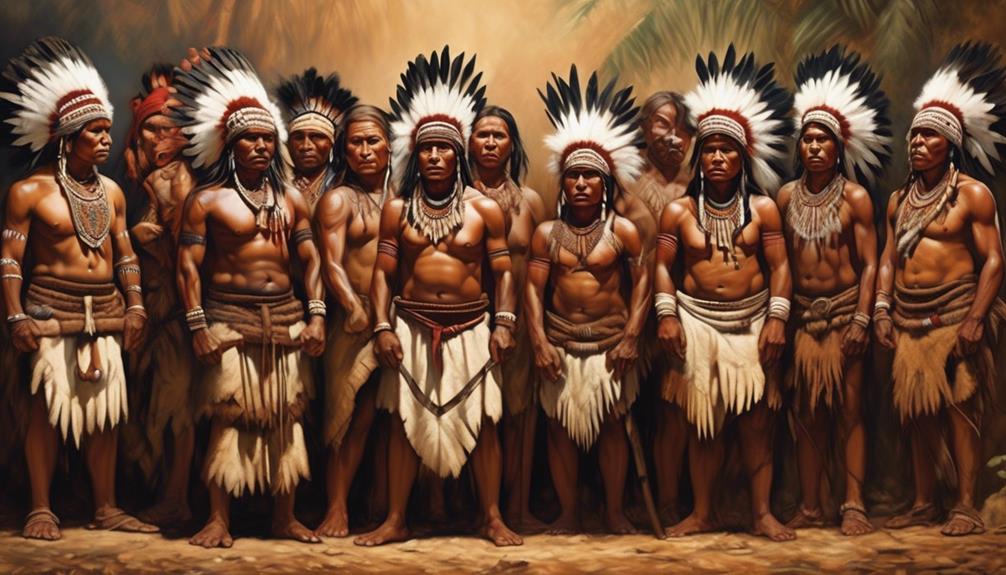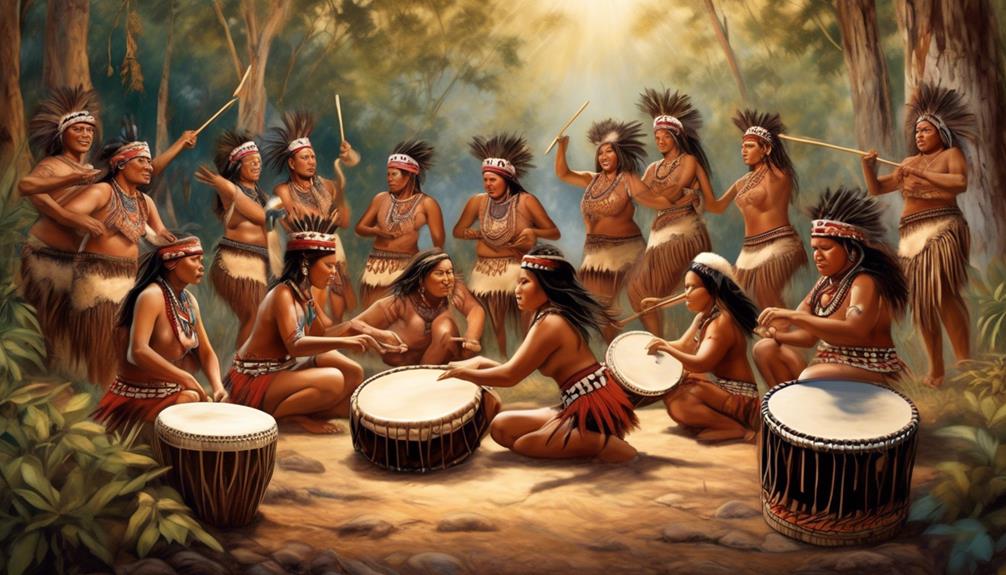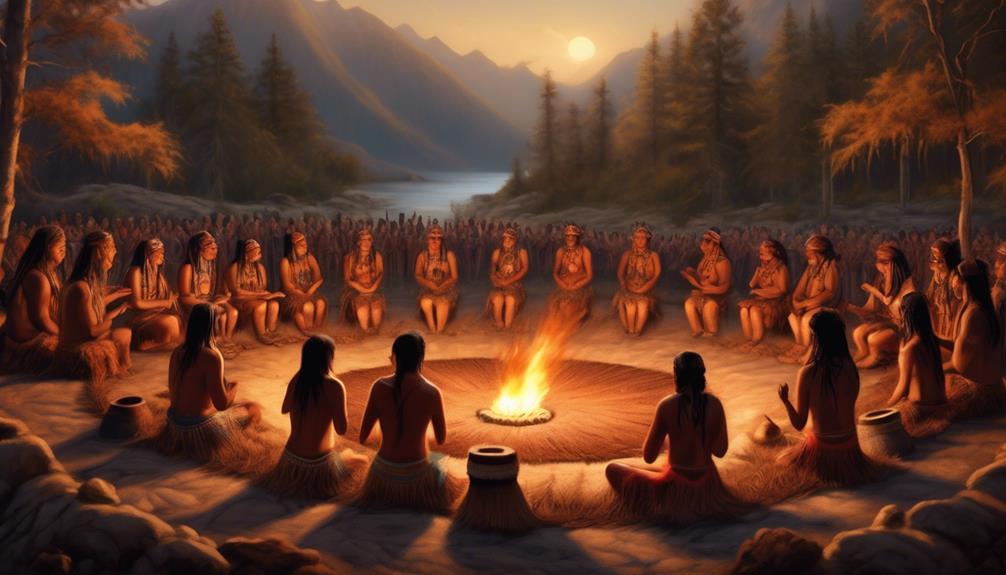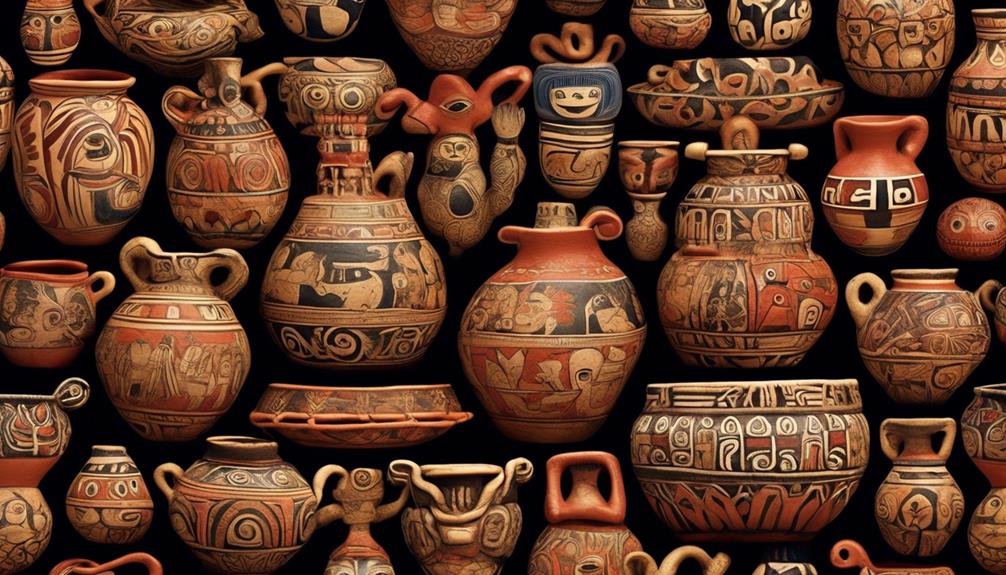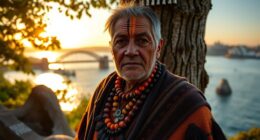Encountering the Maori people for the first time felt like stumbling upon a hidden treasure in a landscape dominated by familiar landmarks. Their rich culture, steeped in tradition and history, creates a tapestry woven with resilience and honor.
But where exactly do the Maoris belong as indigenous people? The answer is not as straightforward as one might assume, and the complexities surrounding their status make for a compelling exploration.
Key Takeaways
- Maoris are the indigenous people of New Zealand.
- Maori language revitalization efforts are underway, integrating Te Reo into education and public life.
- There are ongoing disputes and grievances regarding Maori land ownership and usage.
- Maori culture and traditions, such as the Haka, Whakapapa, and Ta Moko, are crucial for maintaining cultural integrity.
Maori People: An Overview
As we delve into the rich culture and heritage of the Maori people, it becomes evident that their traditions continue to thrive in modern New Zealand society. The Maori language revitalization and the ongoing struggle for Maori land rights serve as poignant examples of their perseverance and resilience.
The Maori language, Te Reo, is experiencing a resurgence, with initiatives aimed at integrating it into mainstream education and public life. This revitalization not only preserves a crucial aspect of Maori identity but also enriches the cultural tapestry of New Zealand.
Additionally, the issue of Maori land rights remains a significant aspect of Maori identity and history. The Treaty of Waitangi, signed in 1840 between the British Crown and Maori chiefs, continues to be a focal point in discussions about land ownership and usage. The treaty recognized Maori ownership of their lands and guaranteed them full and exclusive rights to their properties. However, over the years, there have been numerous disputes and grievances regarding the implementation of these rights, leading to ongoing efforts to address historical injustices and ensure equitable resolutions.
The resilience and determination of the Maori people in their pursuit of language revitalization and land rights serve as testaments to their enduring cultural strength and influence.
Maori Culture and Traditions
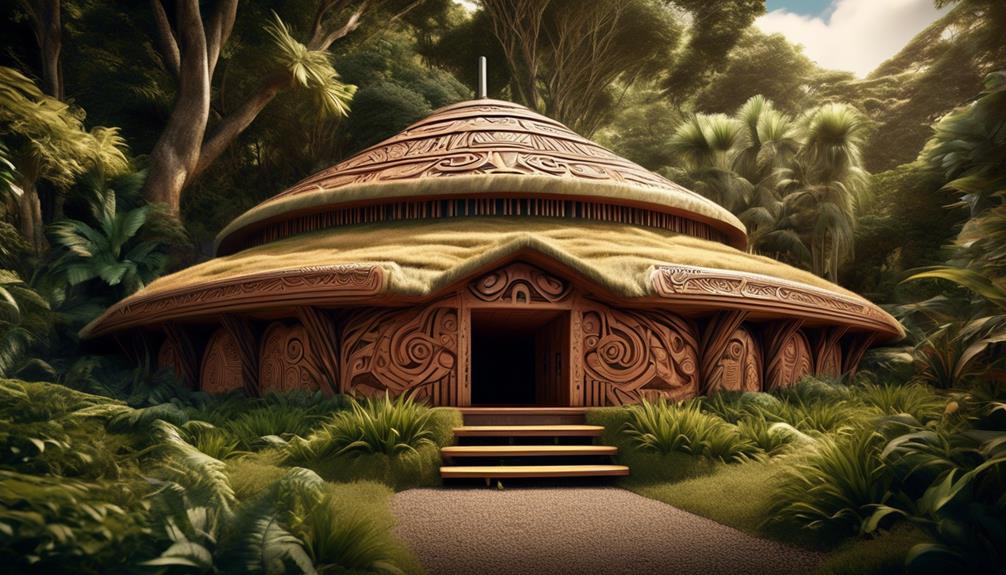
Delving into Maori culture and traditions reveals a rich tapestry of practices and beliefs that have been passed down through generations. Traditional customs, deeply rooted in the Maori way of life, are carefully preserved to honor the ancestors and maintain a strong cultural identity.
Here are three key aspects that showcase the depth and significance of Maori culture and traditions:
- Haka: The Haka is a powerful and iconic ceremonial dance, performed with vigorous movements and rhythmic chanting. It holds great cultural importance, expressing the Maori people's pride, strength, and unity.
- Whakapapa: Maori genealogy, or whakapapa, forms the foundation of Maori identity, connecting individuals with their ancestors and the natural world. It encompasses the oral traditions, stories, and histories that link the past with the present.
- Ta Moko: The intricate facial tattoos, known as ta moko, are a sacred art form in Maori culture, representing a person's identity, social status, and tribal affiliations. Each moko is unique and carries deep spiritual and cultural significance.
The preservation of these traditional customs is crucial in maintaining the integrity and vibrancy of Maori culture, ensuring that the rich heritage continues to thrive for future generations.
Historical Significance of Maoris
The Maoris have played a pivotal role in shaping the history of New Zealand through their resilience, cultural contributions, and interactions with European settlers. Their impact on New Zealand's history is profound, and it is essential to understand the historical significance of Maoris in the broader context of the country's development. One of the most significant aspects of their historical significance lies in their cultural preservation despite the significant impact of colonization. The Maoris have managed to retain and revitalize their language, traditions, and arts, contributing to the rich tapestry of New Zealand's cultural heritage.
| Historical Significance of Maoris | ||
|---|---|---|
| Cultural Preservation | Colonization Impact | Resilience |
| Despite colonization, Maoris have preserved their cultural practices, language, and traditions, contributing to the unique cultural identity of New Zealand. | The impact of colonization on Maori society was profound, leading to significant changes in their social, economic, and political structures. | Maoris have demonstrated remarkable resilience in the face of historical challenges, adapting to changes while maintaining their cultural identity. |
The Maoris' historical significance is a testament to their enduring legacy and the vital role they continue to play in shaping New Zealand's history and cultural landscape.
Maoris as the Indigenous People

Indigenous to New Zealand, the Maoris have a rich cultural heritage and a deep connection to the land. Our indigenous identity is rooted in the traditions, language, and customs passed down through generations. Cultural preservation is paramount to us, and we actively strive to maintain our unique way of life.
Here are three key elements that contribute to the Maori's indigenous identity and cultural preservation:
- Whakapapa (Genealogy): Our ancestral lineage is a fundamental aspect of our identity. We trace our roots through whakapapa, emphasizing the interconnectedness of all living things and the significance of our genealogical ties to the land.
- Te Reo Māori (Maori Language): The preservation and revitalization of the Maori language are crucial to maintaining our cultural identity. Efforts to promote and teach Te Reo Māori ensure that our language continues to thrive.
- Kaitiakitanga (Guardianship): As kaitiaki (guardians), we have a responsibility to protect and sustain the natural environment. This traditional concept is integral to our cultural preservation, as it reflects our deep spiritual and cultural connection to the land.
Our commitment to indigenous identity and cultural preservation ensures the continuation of our rich heritage for future generations.
Contemporary Issues and Representation
To address contemporary issues and improve representation, we're actively engaging with policymakers and advocating for our community's needs. Representation is a critical concern for us as Maoris, as it directly impacts our visibility, voice, and inclusion in decision-making processes.
We're working towards ensuring that our cultural heritage and traditions are accurately and respectfully portrayed, addressing the issue of cultural appropriation. It's imperative that our community is represented authentically in various spheres, including media, education, and politics.
By engaging with policymakers, we aim to influence legislation and policies that acknowledge and support our unique cultural identity, ensuring that our perspectives are considered in matters that affect us.
Additionally, we're committed to fostering understanding and appreciation of Maori culture, challenging misrepresentations and stereotypes. Through these efforts, we strive to create an environment where our community's contributions are valued and where cultural appropriation is actively addressed.
We believe that by actively participating in these discussions and advocating for our community, we can pave the way for better representation and inclusivity.
Frequently Asked Questions
What Are the Traditional Maori Healing Practices and Remedies?
Traditional Maori healing practices and remedies are deeply rooted in cultural traditions and natural remedies. These practices have been passed down for generations and continue to be used in modern applications.
Maori healing encompasses holistic approaches to health, including the use of native plants and spiritual healing techniques.
Additionally, the Maori people are known for their customary fishing rights and environmental stewardship, which further contribute to their overall well-being.
How Are Maori Customary Fishing Rights Managed and Enforced in New Zealand?
Maori fishing regulations reflect the balance of indigenous rights, cultural preservation, and environmental sustainability.
The management and enforcement of Maori customary fishing rights in New Zealand involve a delicate interplay of legal frameworks and traditional practices.
These regulations ensure the protection of marine resources while respecting the cultural significance of fishing to the Maori people.
It's a testament to the harmonious coexistence of tradition and modern governance in safeguarding our natural heritage.
What Are Some Common Misconceptions About Maori Spirituality and Beliefs?
Common misconceptions about Maori spirituality and beliefs often stem from a lack of understanding of their cultural practices. Many people mistakenly believe that Maori healing and traditional remedies are solely based on superstition, when in fact they're deeply rooted in holistic approaches to health and well-being.
It's important to recognize the spiritual significance of these practices and the interconnectedness of Maori beliefs with the natural world.
Are There Any Prominent Maori Leaders or Figures in Contemporary New Zealand Politics?
In contemporary New Zealand politics, Maori representation and political influence have significantly increased. Prominent Maori leaders like Nanaia Mahuta and Rawiri Waititi have played pivotal roles in advocating for Maori rights and issues.
Their influence has led to greater recognition of Maori culture and values in the political landscape, contributing to more inclusive policies and decision-making processes.
This shift reflects the growing significance of Maori voices in shaping the nation's future.
How Do Maori Communities Address Issues of Land Ownership and Use in Modern Society?
In modern society, Maori communities address land disputes through a combination of legal channels and traditional methods. They strive to preserve their cultural heritage while navigating complex issues of ownership and use.
Conclusion
So, in conclusion, the Maoris are the indigenous people of New Zealand. But their story doesn't end there. With their rich culture and traditions, they continue to play a significant role in contemporary society, facing their own unique set of challenges and striving for better representation.
It's an ongoing journey that keeps us all captivated and inspired by their resilience and strength. Who knows what the future holds for the Maori people? Only time will tell.
